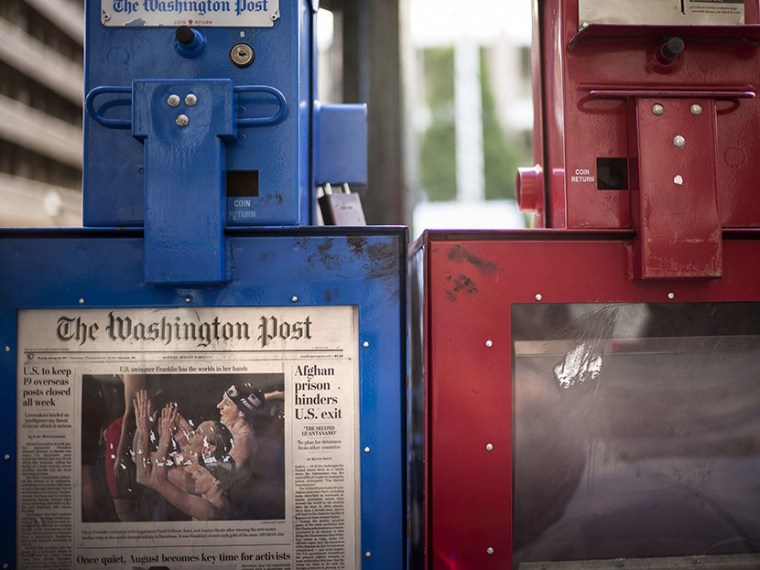The sale of the family-owned Washington Post to an Internet billionaire who lives 3,000 miles away says a lot about journalism and how it’s changed over the past generation. But it says even more about power in America and how that’s changed over the past century.
Today’s ruling class exercises its power from a much greater geographic distance than its predecessors ever did. Political and economic power were once concentrated at the local level. Every city and town had, for better or worse, its own distinctive elite. Now power is concentrated at the national level. This social transformation was a hugely significant fact of American life throughout the 20th century, but it was never felt in Washington, D.C. Until now.
The great tectonic shift began with politics. In 1933, when Eugene Meyer purchased the Post, the politicians who mattered the most were big-city mayors. But civil service reform and immigration restrictions had already weakened urban political machines, and the New Deal would finish them off by making Uncle Sam rather than Tammany Hall the principal source of political patronage.
As Washington expanded its regulatory power and took responsibility for the nation’s poor, aged, and infirm, city and state governments found themselves preoccupied more and more with managing programs devised and funded in the distant capital. Conservatives decry this evolution, but without it America wouldn’t have eliminated de jure racial segregation in the South or widespread destitution among the elderly--among other achievements.
The economic shift began a bit later, after World War II, starting with the growth of multinational corporations. Construction of the interstate highway system encouraged creation of suburban malls and, later, big-box stores that decimated local commerce in traditional downtowns. The final blow was banking deregulation, which killed off most regional banks and replaced them with monstrosities like Citigroup. Liberals have fought all these developments (though seldom under a unified “anti-nationalist” banner). But without them … er … well, maybe some consumer prices would be higher?
Washington, D.C., was weirdly immune to both power shifts. The consolidation of political power in Washington obviously made the city more powerful, not less. Meanwhile, D.C. didn’t have much local economic power to lose, because it never had much of an economy to begin with. Even today, only one billionaire—a little-known tech tycoon and film producer named Steven Rales--resides within its borders. By comparison, in New York City at least three or four billionaires live at a single address (740 Park Ave.).
D.C.’s billionaire deficit may come as a surprise to those who’ve read, in Mark Leibovich’s recent book This Town, that it’s the wealthiest metropolitan area in the country. But however corrupt they may be and however damaging their presence to equitable governance, the lobbyists, lawyers, and consultants who enrich themselves in Washington are at best millionaires, not billionaires. Washington Post Co. chairman Don Graham is dean of the city’s business establishment with a net worth of only about $500 million.
Now Graham is selling the asset that was the reason for his preeminence, and that of his mother, father, and grandfather before him. With Jeff Bezos’ acquisition of the Post the city loses its ruling business dynasty. That dynasty was almost entirely benevolent, and rightly admired. Now it’s gone. (Katharine Weymouth, the Post’s publisher and Don Graham’s niece, will stay on at least a year according to the terms of the sale, but her stature is instantly diminished by the sale.)
The hometown economic elite—rich local families or individuals whom people used to praise or revile, read about in the society pages, and gossip about incessantly—disappeared from most American cities decades ago. It happened later in D.C. than elsewhere because newspapers were just about the last pillar to fall. As the newspaper business started to decline due to competition from TV and radio, newspapers were granted antitrust exemptions that allowed them to operate as local monopolies. This eventually made them much more profitable than they’d ever been before, and the result was, from the 1960s through the 1990s, a golden age of newspaper journalism.
It lasted at the Post longer than it has at most other newspapers (and the Post today still has to be ranked among the country’s top three). But the ruthless logic of capitalism was bound to catch up sooner or later, and now it has. Washington, of all places, will have to get used to taking its marching orders from Seattle.
